You’ve likely seen it in the news, on Netflix (peep Fantastic Fungi, you won’t regret it), on your podcast lineup, in health food supplement sections, or just in your grocery store produce aisle…”mushroom this, mushroom that” is everywhere these days.
So much so, that the popularity of mushrooms is often referred to as the ‘shroom boom’.
It’s safe to say that the mushroom craze has hit the United States – and it’s here to stay.
As you start to dive into the magical world of mushrooms, learn the mushroom’s anatomy and then dive into the key differences between gourmet mushrooms, medicinal mushrooms, and psychedelic mushrooms (these facts are a great place to start on your mushroom education journey).
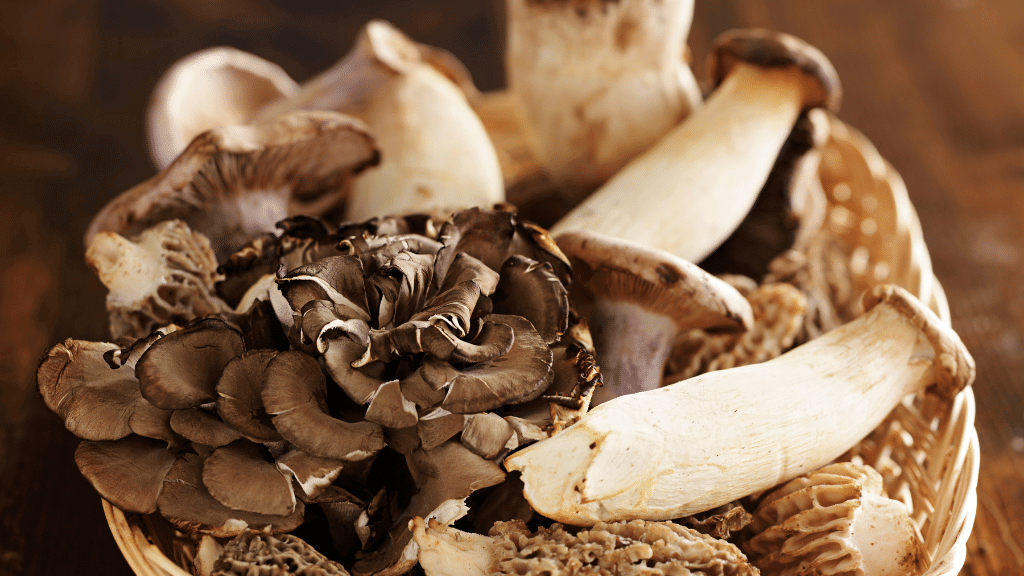
Once you better understand what mushrooms are and how they can be used, you can start to think about the most appropriate ways to start adding mushrooms into your daily health regimen.
Why should you consider adding mushrooms into your daily routine?
Well, for a number of reasons, but the most important one is that they’re high in nutritional value.
From just eating them in your daily meals to supplementing your diet with medicinal mushrooms, boosting your health with mushrooms is a big win for your body and mind.
Let’s take a look at the nutritional benefits of mushrooms with a bird's eye view:
A quick guide to mushroom nutrition
Eastern cultures have been utilizing mushrooms for centuries for their amazing nutritional value and potential health benefits. Western cultures are slowly catching up – the United States included – and realizing the immense benefits mushrooms can have in our daily routines. The key elements that make mushrooms so nutritious and beneficial are:
- High-quality proteins: Fungi in general are a great source of high-quality proteins - this is especially great news for vegans and vegetarians who rely on other foods to get their daily protein intake. Oyster mushrooms are a great example as they are made up of 30% protein. Many consider mushrooms to be at the forefront of helping to address climate change as mushrooms have such a high protein content and may be the answer to our reliance on meat.
- Vitamins: B-complex vitamins are significant in the fruiting bodies of mushrooms, specifically b12. With b12 being a crucial vitamin for our body to continue creating new and healthy blood cells, mushrooms make for a great dietary addition to ensure we’re getting enough of this vitamin.
- Minerals: Mushrooms are a rich source of minerals. In fact, some types have as much at 7-12% of their total makeup being minerals alone. In particular, mushrooms are a good source of trace minerals like zinc, copper, and iron, as well as macrominerals like phosphorus and potassium.
- Fiber: Mushrooms are considered one of the highest-fiber foods around. If you’re looking at dry weight alone, mushrooms actually have the highest dietary fiber of any food. This makes mushrooms great for digestion and overall gut health.
- Beta-glucans: We only mention beta-glucans because they’re one of the key compounds found in mushrooms that make them extremely beneficial for medicinal purposes. The little fibers found in the cell walls of mushrooms are shown to help boost the immune system and even fight off harmful diseases like cancer. Learn more about beta-glucans on our blog.
In addition to these nutrients, mushrooms are also great sources of:
- Selenium
- Copper
- Thiamin
- Magnesium
- Phosphorous
- Potassium
All of these beneficial compounds help the body do what it does best: protect you and help you thrive.
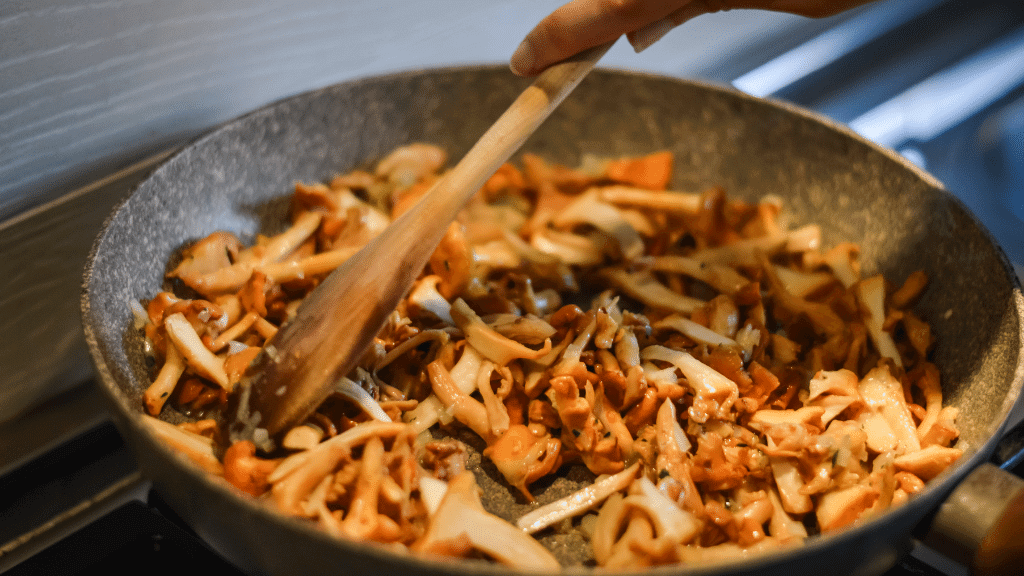
So, with such a strong nutritional track record, let’s figure out some ways to get mush, mush more mushrooms into your daily life.
Here they are…
6 easy ways to incorporate more mushrooms to your daily routine
There are a number of ways to incorporate more mushrooms into your diet. It’s easier than ever for consumers to purchase quality mushroom powders, extracts, tinctures, capsules, coffee substitutes, and more.
As you consider the various ways to add mushrooms into your daily regimen, it’s important to examine what your routine already looks like.
For example, if you already cook with mushrooms often but are looking for additional ways to add them into your daily routine, perhaps supplementation is the next step for you.
Conversely, if you are void of mushrooms in your life all together, adding them into your cooking routine is a great place to start.
No matter what your routine looks like, consider what’s best for you.
The answer will be different for everyone – and the beauty of mushroom supplementation is that it’s super flexible.
With that in mind, here are our six easy recs:
1. Mushroom powder
Mushroom powder is created by harvesting the entire mushroom fruiting body and its mycelium, and then dehydrating both to grind them into a fine powder. This differs from mushroom extract powder because the buck stops there with the processing, while extract powder is created by then placing the powder into a hot water or alcohol solvent.
Using mushroom powder is a great way to reap the nutritional benefits of mushrooms in a very approachable way.
The powder is easy to blend into smoothies, coffee, gourmet dishes, or really anything in the kitchen, and has a very subtle, earthy taste that you can barely detect once it’s mixed in with something else. Easy peasy!
2. Mushroom extract powder
If you’d like to reap the medicinal and nutritional benefits of mushrooms, then mushroom extract powder is a good fit for you. Creating an extract powder follows much of the same process as mushroom powder, until you then soak it in a solvent (using either hot water or alcohol extraction processes) and then spray it with a fine mist to eventually let it dry back to powder form.
By doing this, you allow for the bioactive compounds that are not easily broken down by the human body to be digestible in the upper digestive tract.
Specifically, beta-glucans are released when you add in the extraction process. This might be a better fit for those seeking specific functional benefits (e.g, immunology needs or cancer care), and can be simply blended into drinks, added to foods, or steeped as a tea.
Here's a quick guide to comparing mushroom powder to mushroom extract:
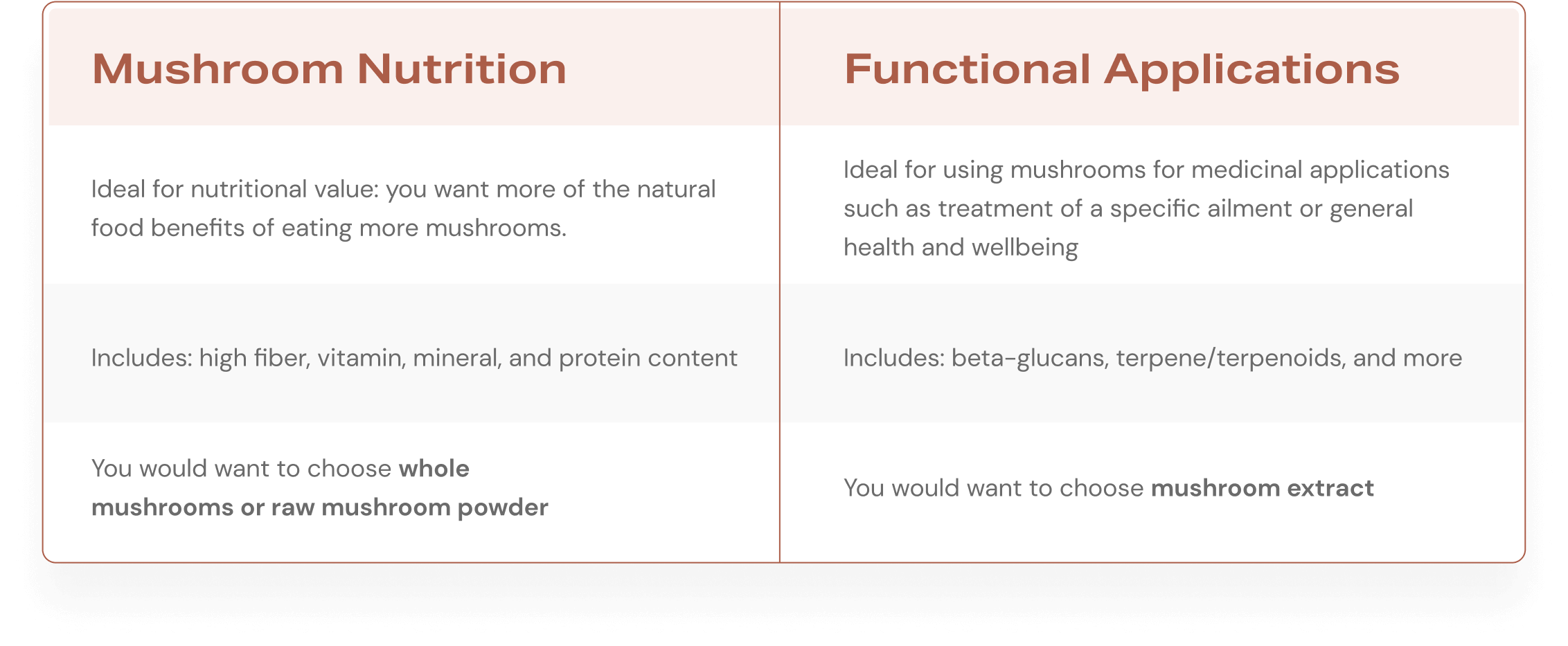 3. Mushroom capsules
3. Mushroom capsules
If you’re the go, go, go type, then mushroom capsules are right up your alley. Mushroom capsules are full of medicinal mushroom powder or powder extract and are great for on-the-go mushroom benefits.
When purchasing a mushroom capsule, ensure you’re doing your research to look at extraction processes. Check out our guide to the best mushroom capsule brands for help finding a capsule that's right for you.
The company should supply a Certificate of Authentication (CoA) that shows their process and the overall validity of their claims about their offered products.
4. Dried whole mushrooms
Dried mushrooms are a great shelf-stable pantry staple that still pack in all the health benefits of fresh mushrooms without the need to use them right away before they go bad. We recommend adding dried whole mushrooms into your favorite soups, chilis, teas, and more as a nutrient-rich and flavorful boost. The great news? You can buy dried whole mushrooms in bulk so they’re ready to use whenever you need them.
Interested in drying your own mushrooms? Check out our guide on the process.
5. Mushroom coffee alternatives
Okay, we’re coffee lovers over here, but before you bawk at this recommendation, hear us out. Whether we like to admit it or not, coffee hasn’t always had the best reputation. It can cause you to be jittery or even anxiety-ridden at times due to varying levels of caffeine pulsing through the body.
Considering 62% of Americans have at least one cup of coffee daily, this can be an issue for some people. We personally love coffee - but we will say we’re equally on board with mushroom coffee as an alternative to your morning cup of joe. Mushroom coffee has been shown to help with focus, energy levels, and boosting the immune system.
It’s also shown to help with gut health and stress management. Win, win. The earthy taste of mushroom coffee could take some getting used to, but we think it’s worth a try if you’re trying to ditch (or cut back) on your daily java intake.
If you're ready to try mushroom coffee, we've got great guides on making your own cordyceps or turkey tail coffees.
6. Gourmet mushrooms
Cooking with gourmet mushrooms is arguably the easiest way to start adding more mushrooms into your life.
We recommend cooking with popular mushrooms like lion’s mane, button, maitake, shiitake, oyster, and more (check out more below for specific details about these mushrooms).
Whether you sauté them, add them to stir fry, make them into a soup, or more, mushrooms are a flavorful addition to a lot of common meals. Plus, they’re super easy to find at the grocery store, affordable to purchase, and easy to incorporate into breakfast, lunch, and/or dinner. Winner winner, turkey tail dinner.
Check out our guide to the best mushroom supplements on the market. This is our unbiased take on the mushroom brands that provide the best quality including capsules, coffee alternatives, and more.
The best mushrooms to supplement your diet
Now that we’ve given you the how-to on adding more mushrooms into your daily routine, we’re going to share some recommendations on the best mushrooms to start supplementing your diet with. Those mushrooms include:
Lion’s mane
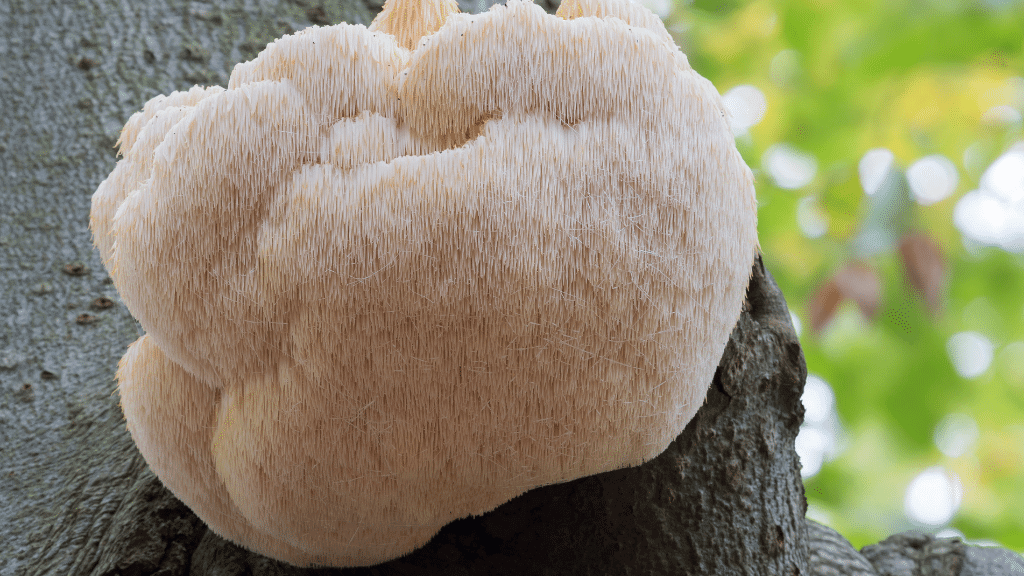
In the wild, you’ll find this light-colored mushroom growing long dendrite-like spines that hang in a way that looks like – you guessed it – a lion’s mane. The great thing about lion’s mane is that it’s full of cancer fighting beta-glucans and diterpenes that help with antiaging and antifatigue. When cooking, people sometimes use lion’s mane as a crab substitute due to its texture, but it can also be used as a nutritious and delicious addition to any savory meal.
We've compiled the absolute best lion's mane recipes to try this week. Let us know what you think!
Shiitake
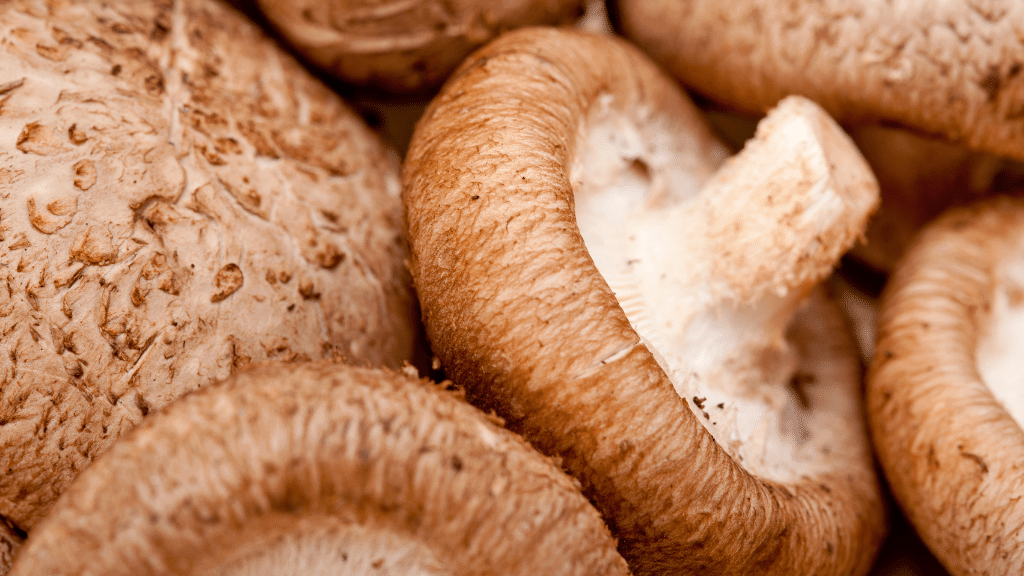
A pretty typical looking stem-and-cap mushroom, shiitake is a common grocery store produce section staple and is delicious in stir fries, soups, and more. It’s been used for centuries in Asian dishes, but also has many beneficial health qualities due to its makeup being high in lentanin, fiber, and eritadenine - all helping with immune boosting benefits and cancer support.
Add shiitake to your diet by making your own shiitake tea. Check out our blog for an easy how-to.
Maitake
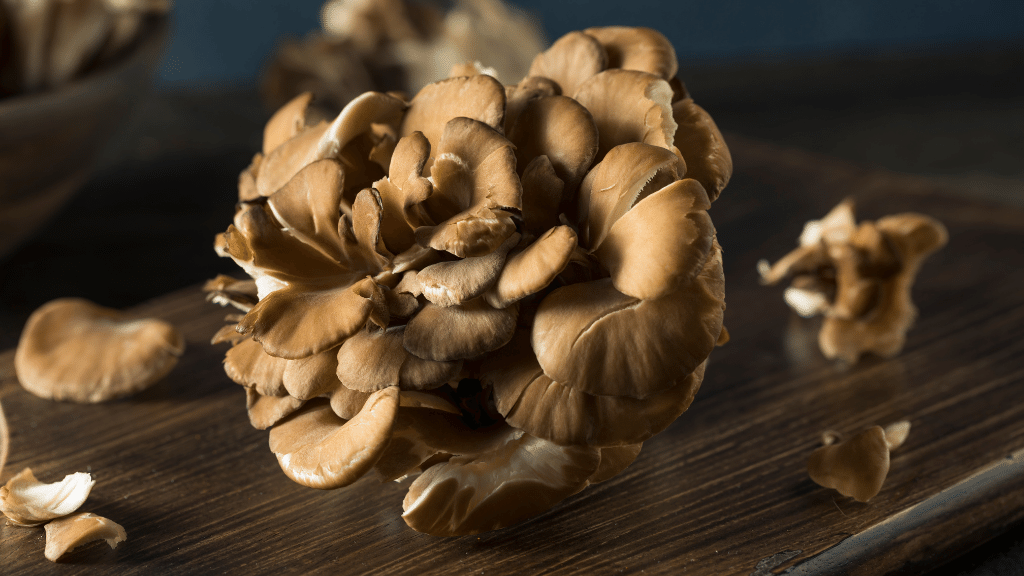
Maitake mushrooms, also known as the dancing mushroom due to them looking like a spinning skirt, are nutrient-dense, immune-activating mushrooms that help with everything from cancer support to live protection, cholesterol regulation, and more. This is due to maitake mushrooms containing d-fraction - a type of beta-glucan that is immune boosting and helps fight cancerous tumor cells. These commonly found grocery store mushrooms are delicious when sauteed in a bit of sesame oil for Asian dishes. Bon appetít!
Oyster
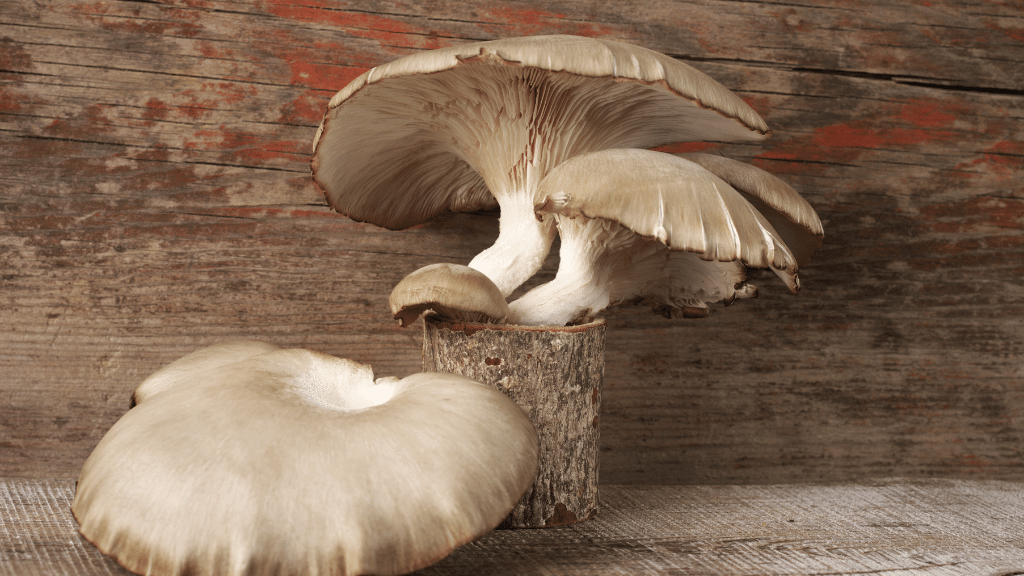
Oyster mushrooms are the third most commonly cultivated species in the world. Their high protein, fiber, beta-glucan, and mineral content make them a great medicinal mushroom choice. But they’re also great for cooking! If you want to grow them at home, you can easily find box grow kits for at-home oyster mushroom growth. Happy planting!
Button
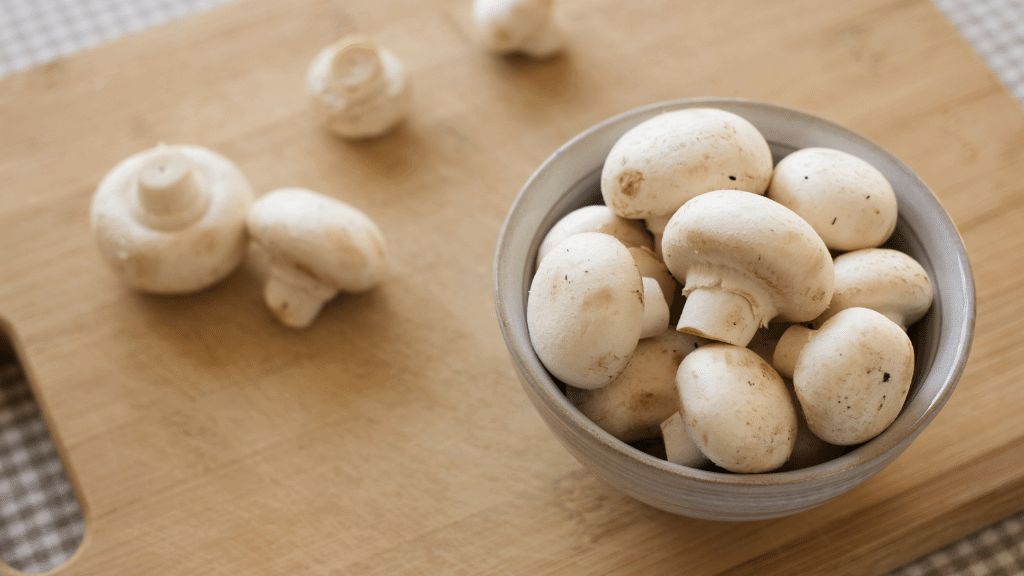
Button mushrooms are available just about everywhere and are truly awesome for any dish you can possibly think of adding mushrooms to. This mushroom is a natural source of vitamin D, helping keep your bones strong and your immune system functioning at full force. Did you know that button, cremini, and portobello mushrooms are really the same mushroom? Find out more about this popular medicinal and gourmet mushroom here.
Join in on the shroom boom
The next questions to ask yourself after reading all of that (whew), are which mushroom is going to be the first one you add to your regimen? Are you going to add in a supplement or simply start cooking with mushrooms more? The good news? You can’t go wrong.
Let us know what you decide to do! Here’s to having more mushrooms in our lives.
For more information on mushrooms, check out our site for more information about various species, their health benefits, and more.

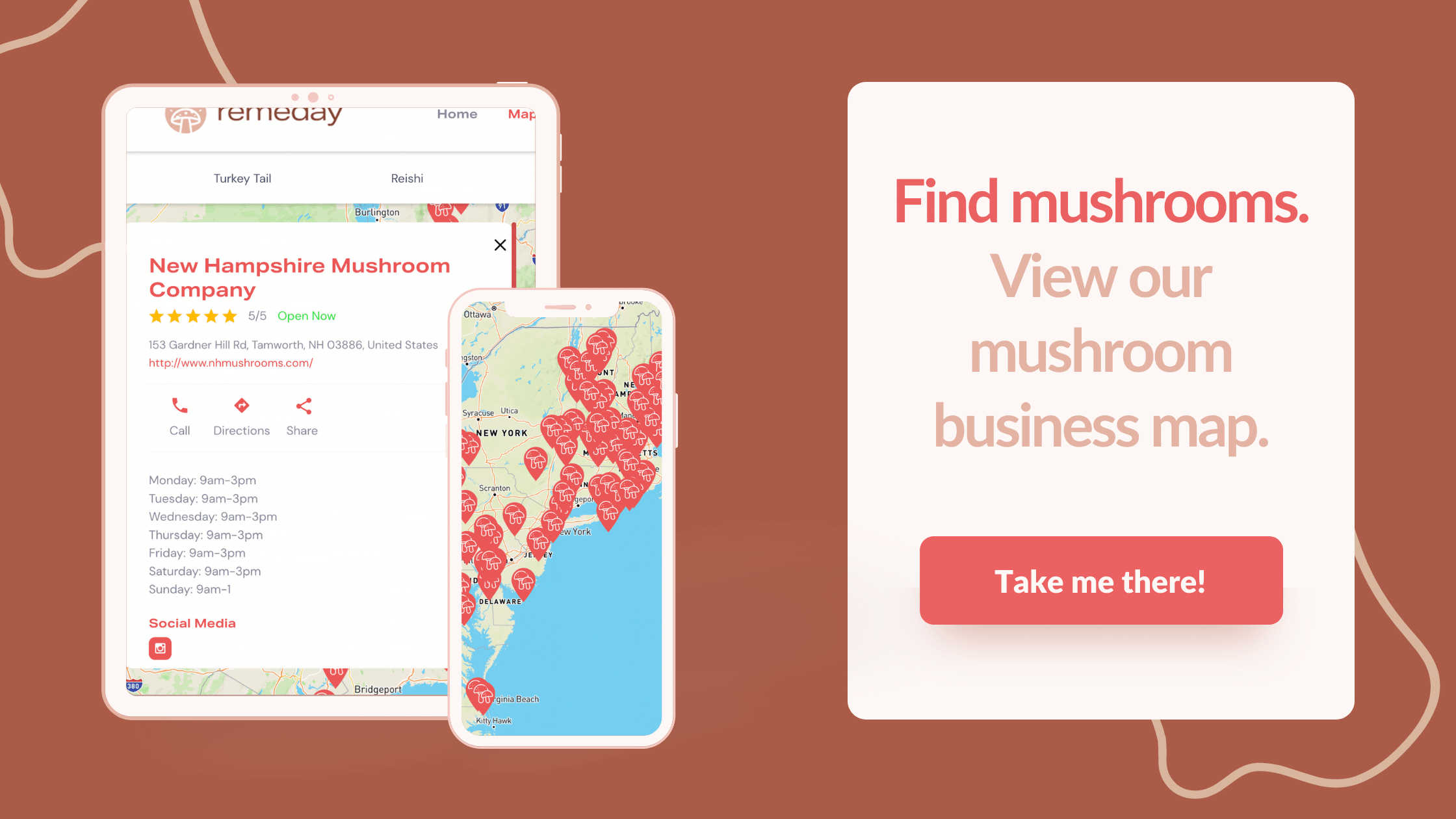
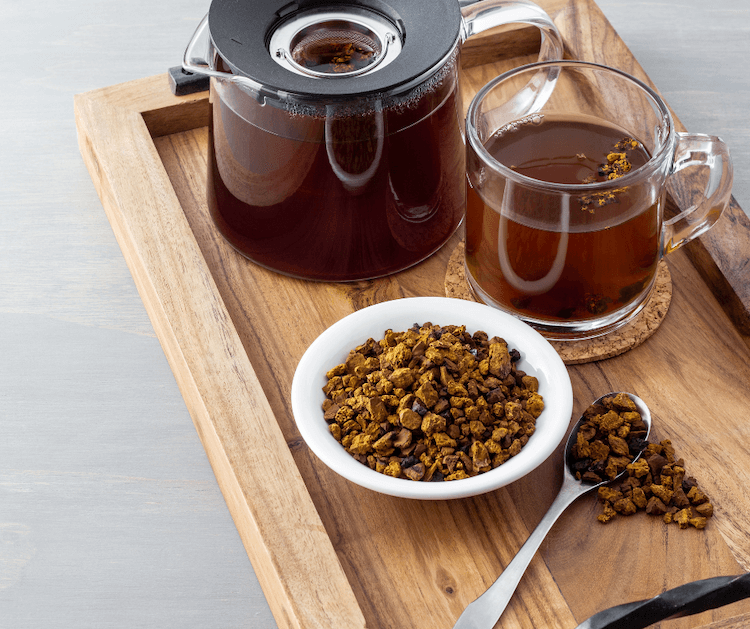
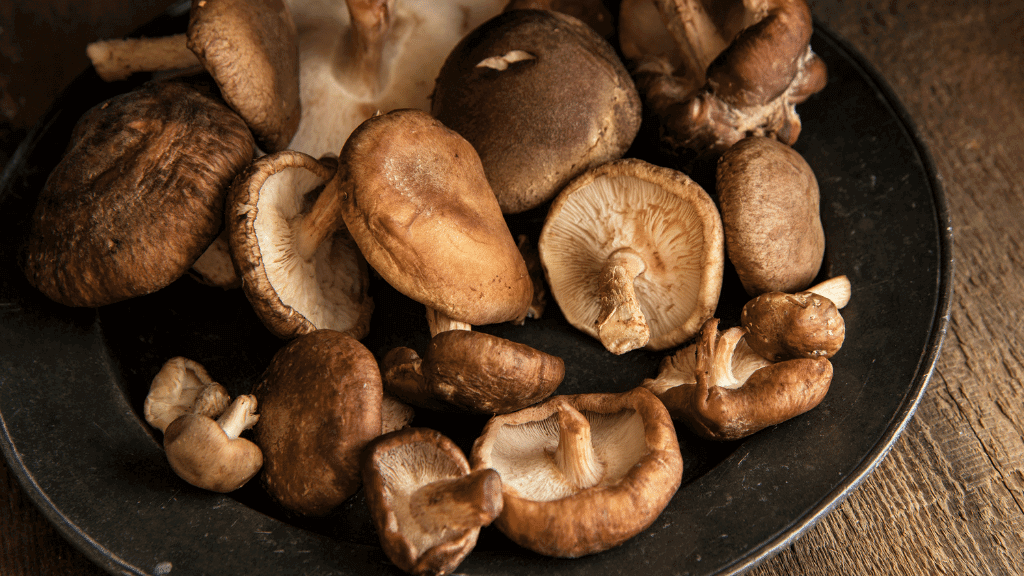


.png)
